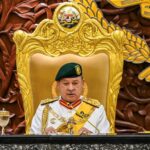MALAYSIA is gearing up for its seventh Bumiputera Economic Congress (BEC), scheduled from February 29 to March 2, marking another in a series of ad hoc government-sponsored conventions.
The historical trajectory of BECs has been variegated, but the spirited promotion of BEC2024 by the Anwar Ibrahim administration with their Madani Economic Framework suggests a potentially promising impact.
Reflecting on past BECs, the inaugural event in 1965 and its successor in 1968 catalyzed the establishment of institutions like Bank Bumiputera and MARA (Majlis Amanah Rakyat, the Council of Trust for the People), ushering in broader interventions favoring Bumiputeras. The subsequent BECs in 1980 and 1992, during the era of UMNO dominance, saw intermittent reaffirmations of the Bumiputera agenda. Simply because the ruling elites deemed regular reaffirmation unnecessary.
Fast forward to the aftermath of the United Malays National Organisation’s fall in the May 2018 general election. Two successive BECs in September 2018 and 2020 failed to gain significant traction. The September 2018 Congress on the Future of the Bumiputera and Nation appeared rushed, lacking buy-in from Prime Minister Mahathir Mohamad, and overshadowed by post-election euphoria. The September 2020 sessions, organised by the Malay Consultative Council and endorsed by the Muhyiddin Yassin administration, mainly assured the continuity of the agenda. All BECs are inherently politically inspired, with some actually influencing policy outcomes.
Views of a Luminary
In this vein, Dr. Lee Hwok Aun, a senior fellow at ISEAS-Yusof Ishak Institute, came up with seven suggestions to enhance the substantive and constructive nature of the seventh BEC:
1. Clarify Policy Objectives: Instead of defending BEC as a majority right, proponents should articulate specific goals. BEC2024 offers an opportunity to specify policies focused on promoting participation and capability in higher education, management, high-skilled positions, and business ownership, fostering clarity and understanding among Malaysians.
2. Set New Goals: Shift the focus from the traditional 30 per cent equity ownership target to contemporary objectives like the quantity and quality of Bumiputera enterprises. Prioritise targets such as emphasizing growth in mid-tier companies for dynamic, innovative, and competitive outcomes.
3. Emphasize Higher Education: While BEC centers on Bumiputera entrepreneurship, acknowledging that community advancement hinges on education is essential. Give due emphasis to the effectiveness of colleges and universities in reaching disadvantaged students and delivering quality education.
4. Conduct Rigorous Research: Delve into the experiences of the past decade, especially focusing on Teraju, the government agency overseeing Bumiputera economic transformation (BETR). Lessons from novel programs and schemes can inform future policymaking.
5. Apply Lessons Universally: Extend insights gained from the past decade to the entire network of Bumiputera programs, offering valuable lessons in grooming small businesses and targeting disadvantaged individuals.
6. Foster Inclusion: Recognize the diversity within the Bumiputera community and deliver on promises to prioritize low-income Bumiputeras, the indigenous Orang Asli, and Sabah and Sarawak Bumiputeras. Consider opening exclusive programs to other groups or introducing parallel initiatives for all Malaysians.
7. Monitor Progress Vigilantly: Establish robust implementation mechanisms and a coordinating authority while emphasizing the ongoing need for vigilance in monitoring progress and demanding results, particularly considering the historical baggage of Bumiputera policies and related unfinished business.
As the seventh Bumiputera Economic Congress unfolds, these suggestions aim to strike a judicious balance between historical continuity and progressive change, contributing to the overarching goal of the Unity Government.
Rome wasn’t built in a day
Nation-building is the responsibility of all. We need to tackle the bull by its horns. Realising the Madani Economy and BEC requires us to embrace the overarching mission of restructuring the country’s economy.
The pursuit of economic prosperity requires a shift in focus from short-term fluctuations to long-term structural reforms. The true measure of economic success lies not only in achieving dazzling and mesmerising economic metrics but also in the realisation of comprehensive economic goals.
Rather than being fixated on transient indicators influenced by cyclical and seasonal variations, attention should be directed towards the enduring structural reforms that underpin a resilient economy. Failure to do so risks rendering the BEC a mere aspiration, echoing the sentiment of the Malay proverb, “Indah khabar dari rupa” (too good to be true).
In conclusion, the Spanish writer and philosopher George Santayana aptly said, “Those who cannot remember the past are condemned to repeat it.” While Einstein didn’t actually say, “Insanity is doing the same thing repeatedly and expecting different results,” So what are your thoughts on the BEC? In the national interest, please let it be made known to our leaders! – NST
Samirul Ariff Othman currently serves as a senior consultant at Global Asia Consulting (GAC) and has a background as a senior researcher at the Malaysian Institute of Economic Research. Samirul has been engaged as a consultant for government agencies and international institutions. The viewpoints articulated are solely those of the author.







